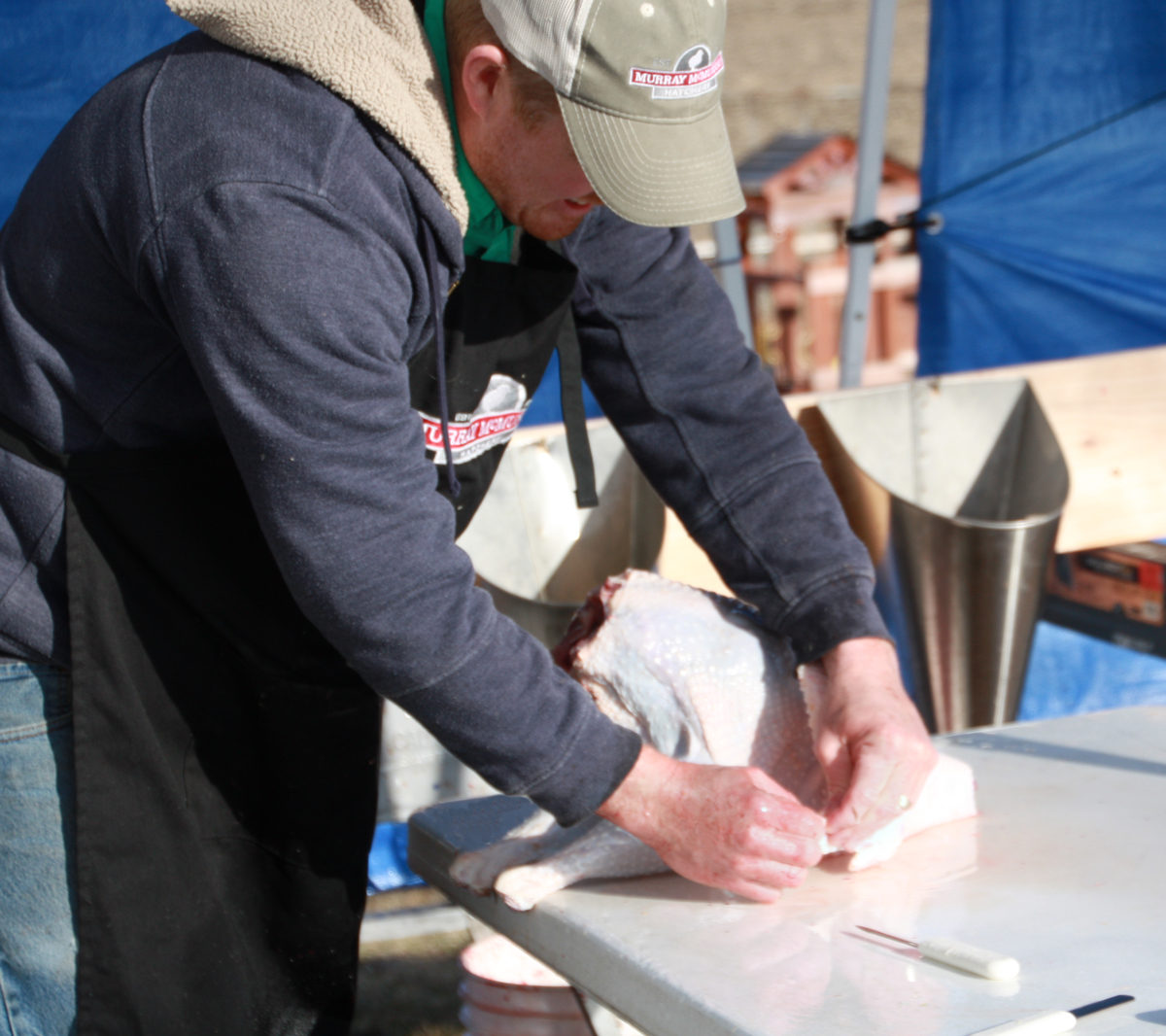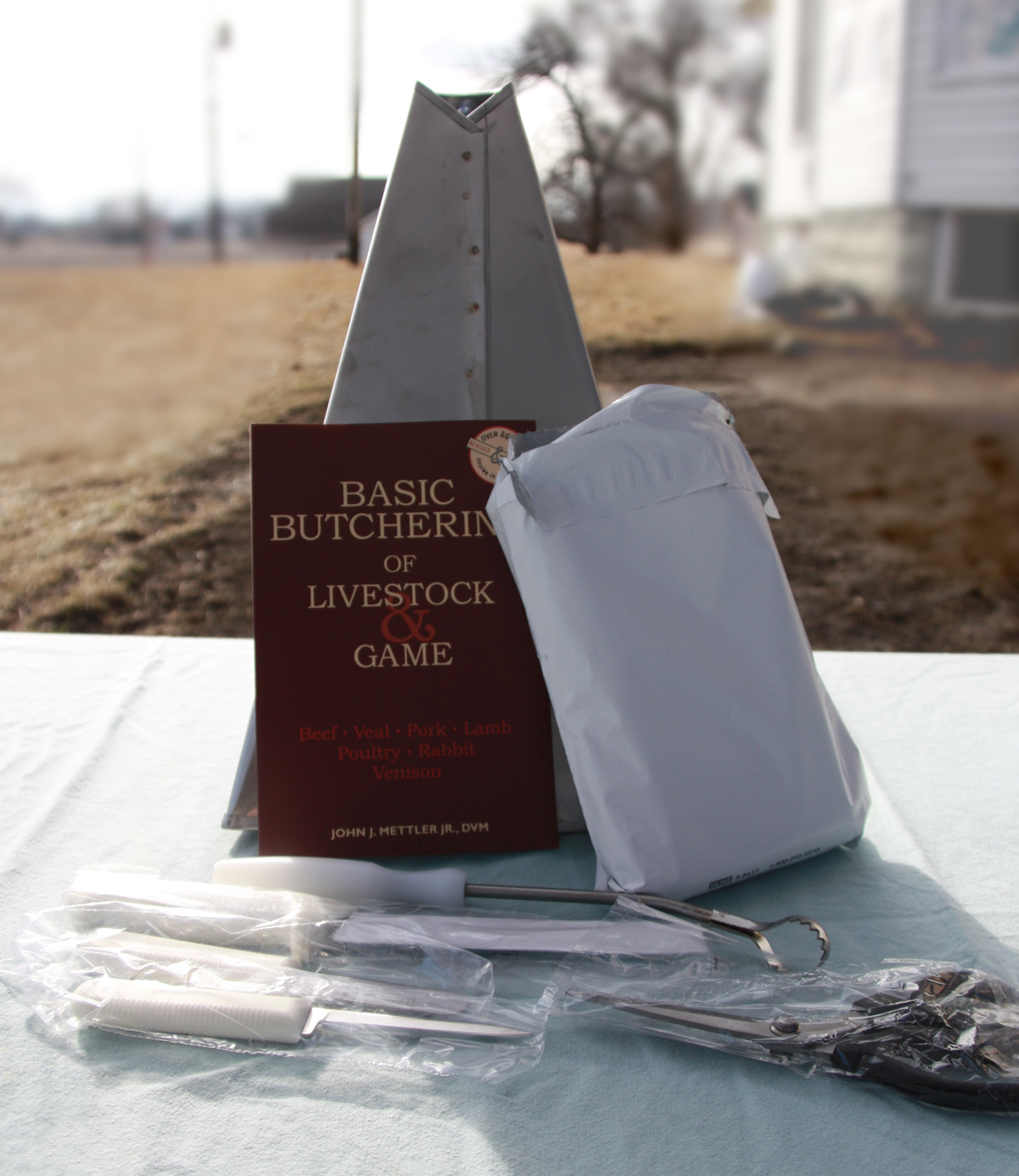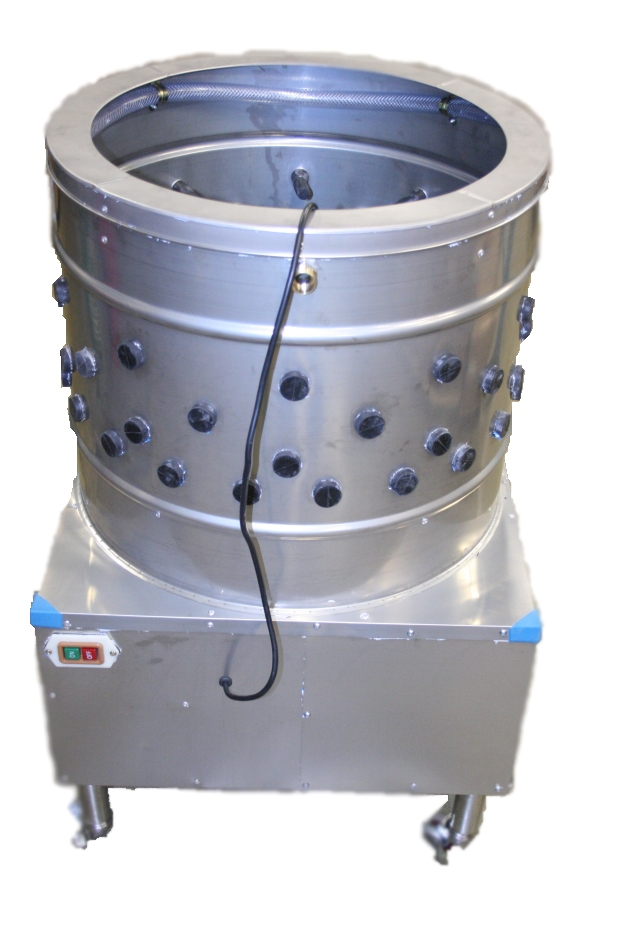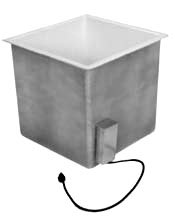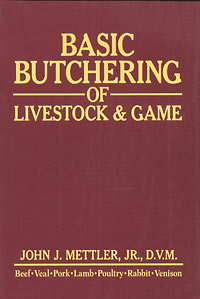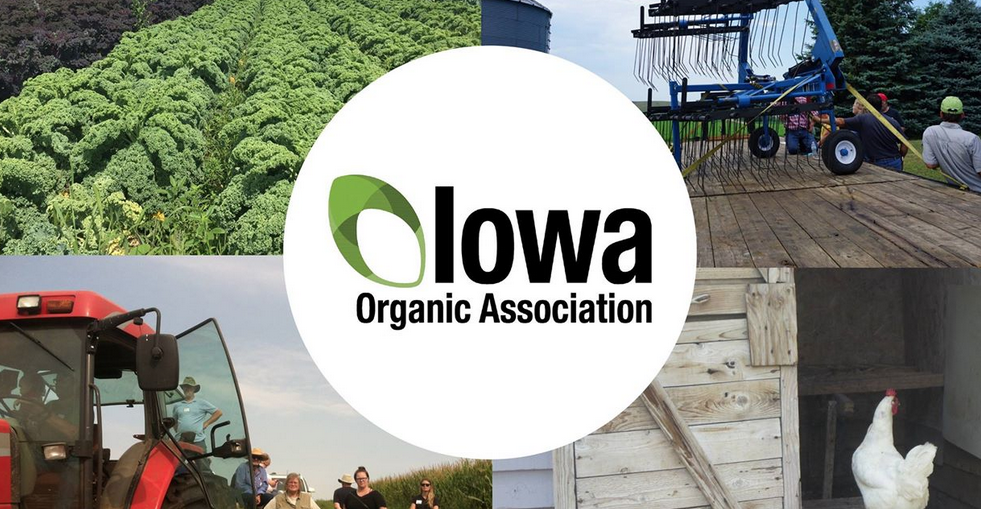 This month the McMurray Hatchery team was honored to be invited to present at the Iowa Organic Association’s On-Farm Poultry Processing workshop. The event brought together poultry owners from across the state to learn about everything from regulations on selling poultry for meat, to working with processors, to DIY poultry processing.
This month the McMurray Hatchery team was honored to be invited to present at the Iowa Organic Association’s On-Farm Poultry Processing workshop. The event brought together poultry owners from across the state to learn about everything from regulations on selling poultry for meat, to working with processors, to DIY poultry processing.
The event featured two segments. The first segment featured two local speakers: Ty Gustafson of Story City Locker spoke to the group about poultry processing regulations and using local processors; and Randy Andrews of Lehigh Locker and The Chickin Pluckin Truck discussed mobile processing solutions. The group then traveled to the homestead of McMurray Hatchery Vice President, Tom Watkins, where he and McMurray President, Bud Wood, spoke to the group about processing equipment and how to process your own poultry. Here are a few key takeaways from the event:
On-Farm Poultry Processing Regulations
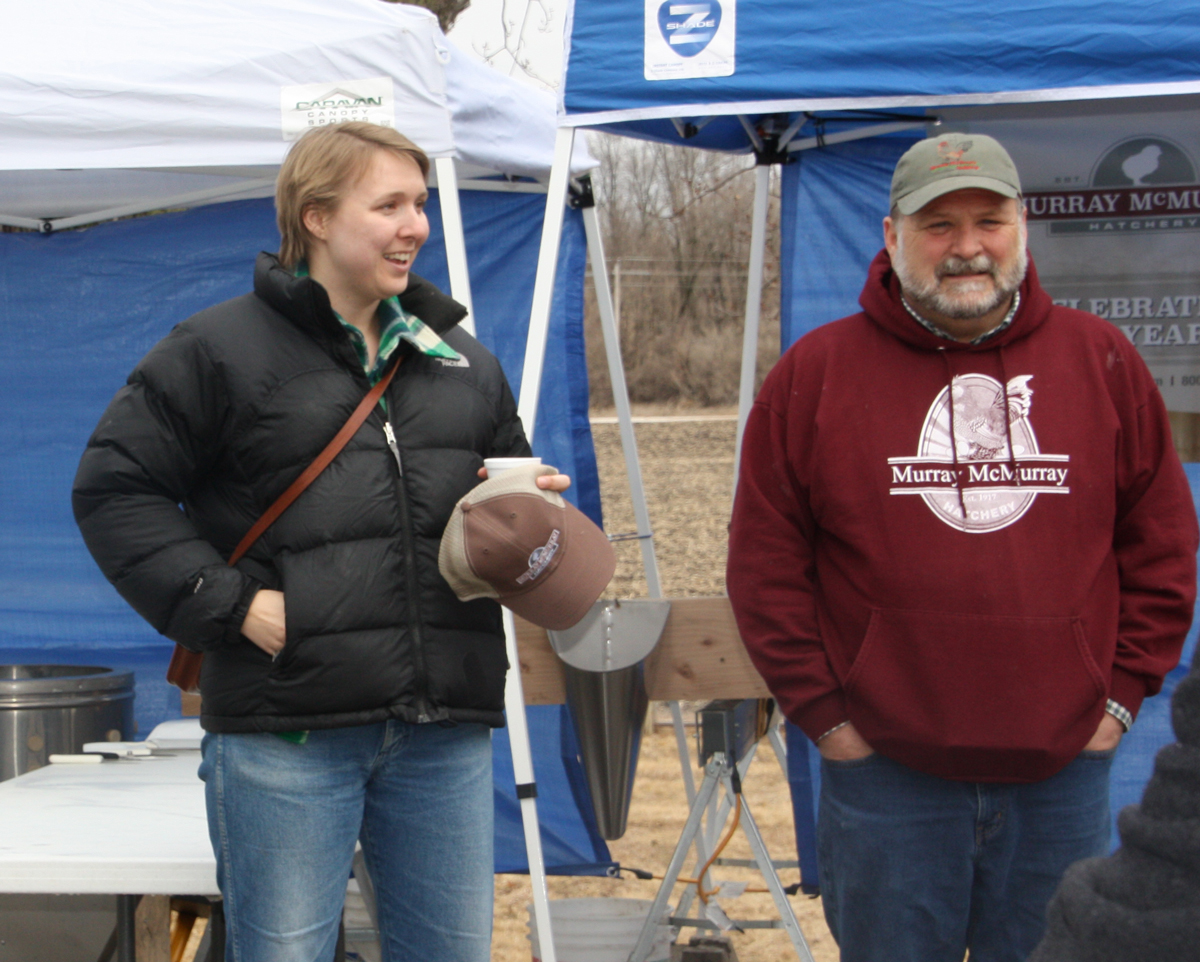 For those interested in a more sustainable lifestyle, many raise their own poultry as a meat source for their families. In addition, there are others who want to take it a step farther and sell their meat birds for a profit. If you’re interested in the latter, make sure you know the regulations for your size of operation (ie. under 1,000 birds per year) in your state as well as federal guidelines. Paying attention to these details is critical when it comes to processing and selling food for consumption.
For those interested in a more sustainable lifestyle, many raise their own poultry as a meat source for their families. In addition, there are others who want to take it a step farther and sell their meat birds for a profit. If you’re interested in the latter, make sure you know the regulations for your size of operation (ie. under 1,000 birds per year) in your state as well as federal guidelines. Paying attention to these details is critical when it comes to processing and selling food for consumption.
The federal Poultry Products Inspection Act (PPIA) administered by the USDA is the law governing poultry processing. Under PPIA, for poultry to be sold as human food it must be slaughtered and processed in a facility with ‘continuous’ inspection (ie. bird-by-bird). PPIA contains some exemptions for smaller processors, but those exempt processors must still follow sanitation, record-keeping and other rules.*
As a smaller operation, it’s important to know if your operation is exempt from having an inspector present at the time of slaughtering and processing. This is determined on a state-by-state level. States have the option of adopting the 1,000- or the 20,000-bird exemption — or both, or neither. This exemption indicates that producers may slaughter and process no more than that number of their own birds, per calendar year, for distribution as human food. In addition, each state has the option to regulate if, and where, producers may market or sell their processed poultry, licensing, and more. For more information on your state’s exemptions, facility requirements, sales venues and licensing requirements contact your state’s extension office or department of agriculture and land stewardship.
Options for Poultry Processing
If you are raising your poultry for meat, you’ll need to determine how you are going to process them: using a local processor or meat locker, hiring a mobile processing service to come to your property, or processing them yourself.
When selecting a local processor or mobile processing service, contact them ahead of time to ensure that they process poultry, what types of poultry they process (some may process chickens but not ducks or geese), if they have an inspector on-site, minimum orders, fees and pricing, are they AWA certified, do they offer organic processing, etc. To find a licensed poultry processor in your state, contact your state department of agriculture.
If you decide to process your birds yourself, you will want to do your research ahead of time to be prepared, and have the right tools on hand. McMurray Hatchery’s Tom Watkins recommends the following set-up for on-farm processing:
- A clean area, preferably a long table with plenty of room to work
- Sharp tools including a bleeding knife, pinning knife, lung remover, and poultry shears
- A culling station with restraining cones (available in multiple sizes to accommodate various breeds) mounted with buckets below each
- A defeathering station including an electric scalder and electric feather plucker
- A cleaning area, a hose or outdoor sink
- Large chest or cooler filled with ice
- Large freezer bags
Watkins says to set aside ample time for processing your own birds. It takes time to process each bird. Follow a step-by-step process to ensure you have a quality product in the end: cull, scald, defeather, clean and trim, chill, bag and freeze. For more information on how to process your own poultry, look for our upcoming article with detailed step-by-step instructions.
Iowa Organic Association
The Iowa Organic Association strives to advance organic opportunities for growers and processors in Iowa by fostering education, research, promotion and market development and policy. For more information, visit their website at IowaOrganic.org.
Recommended Poultry Processing Resources
Below is a list of organizations and resources for on-farm poultry processing, organic certification, and more.
- USDA Organic Program
- MOSA
- (PDF) USDA Poultry Slaughter Exemptions Guide
- Extension.org Poultry Processing Regulations and Exemptions
* REFERENCES: USDA.gov, Extension.org

